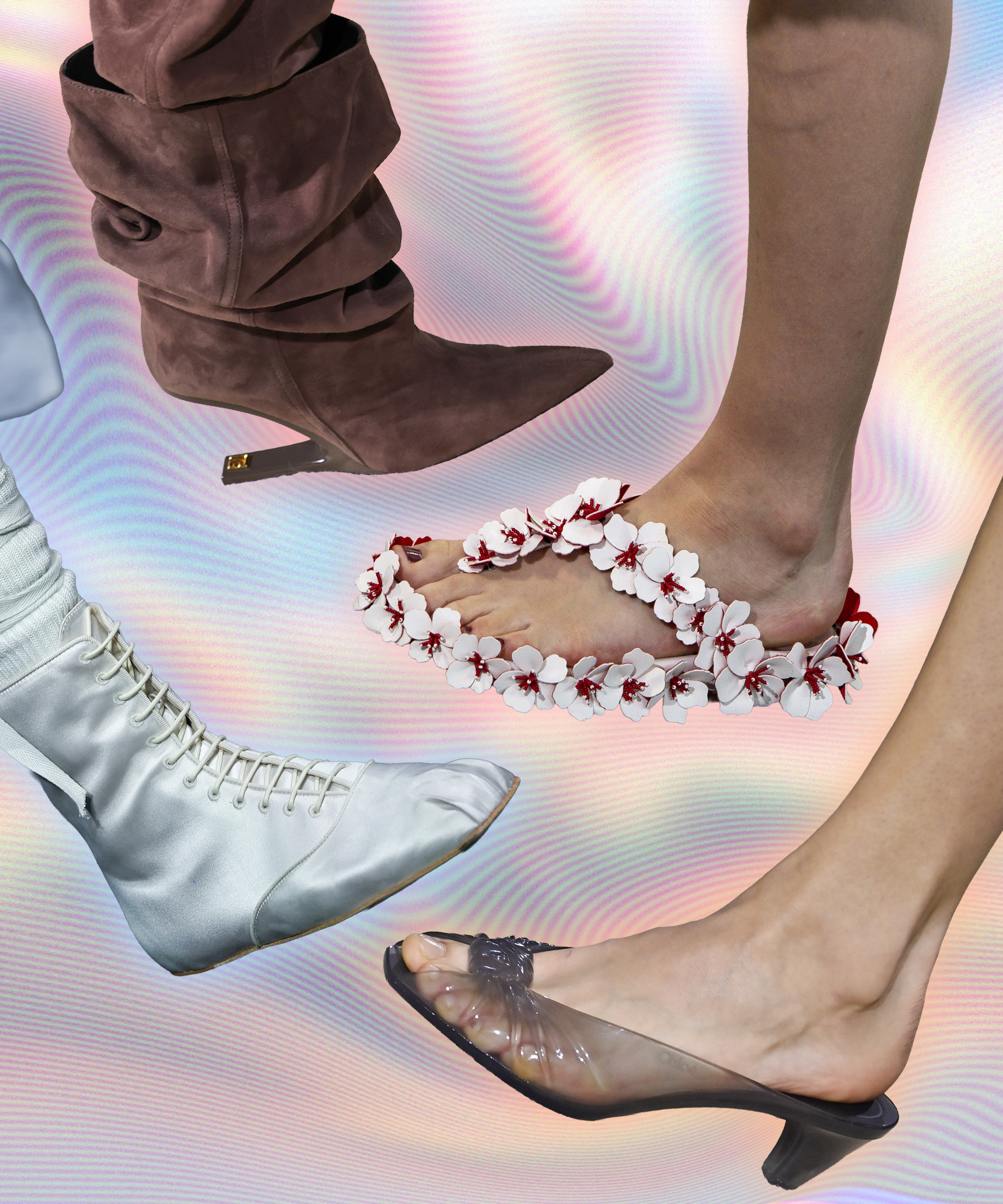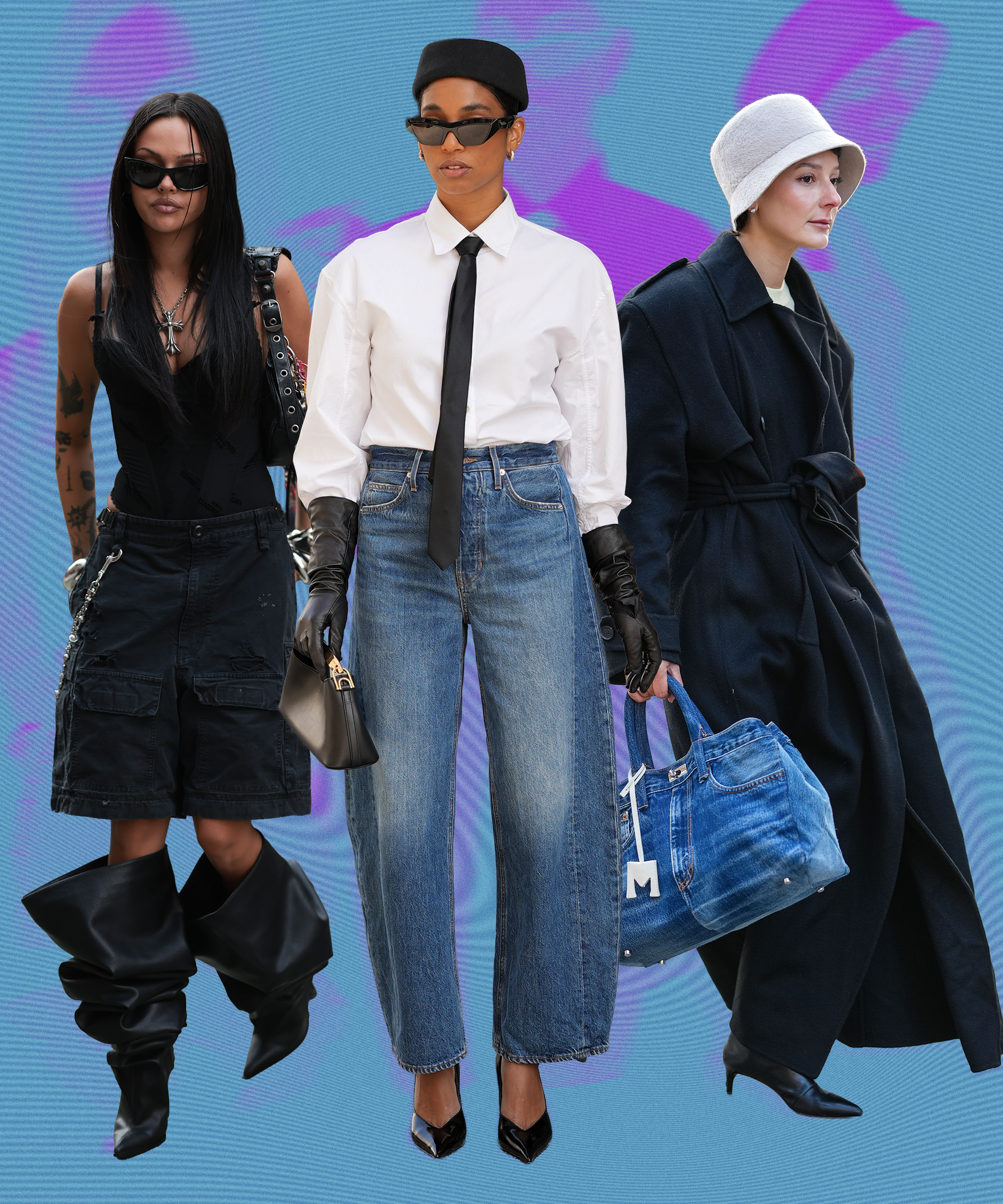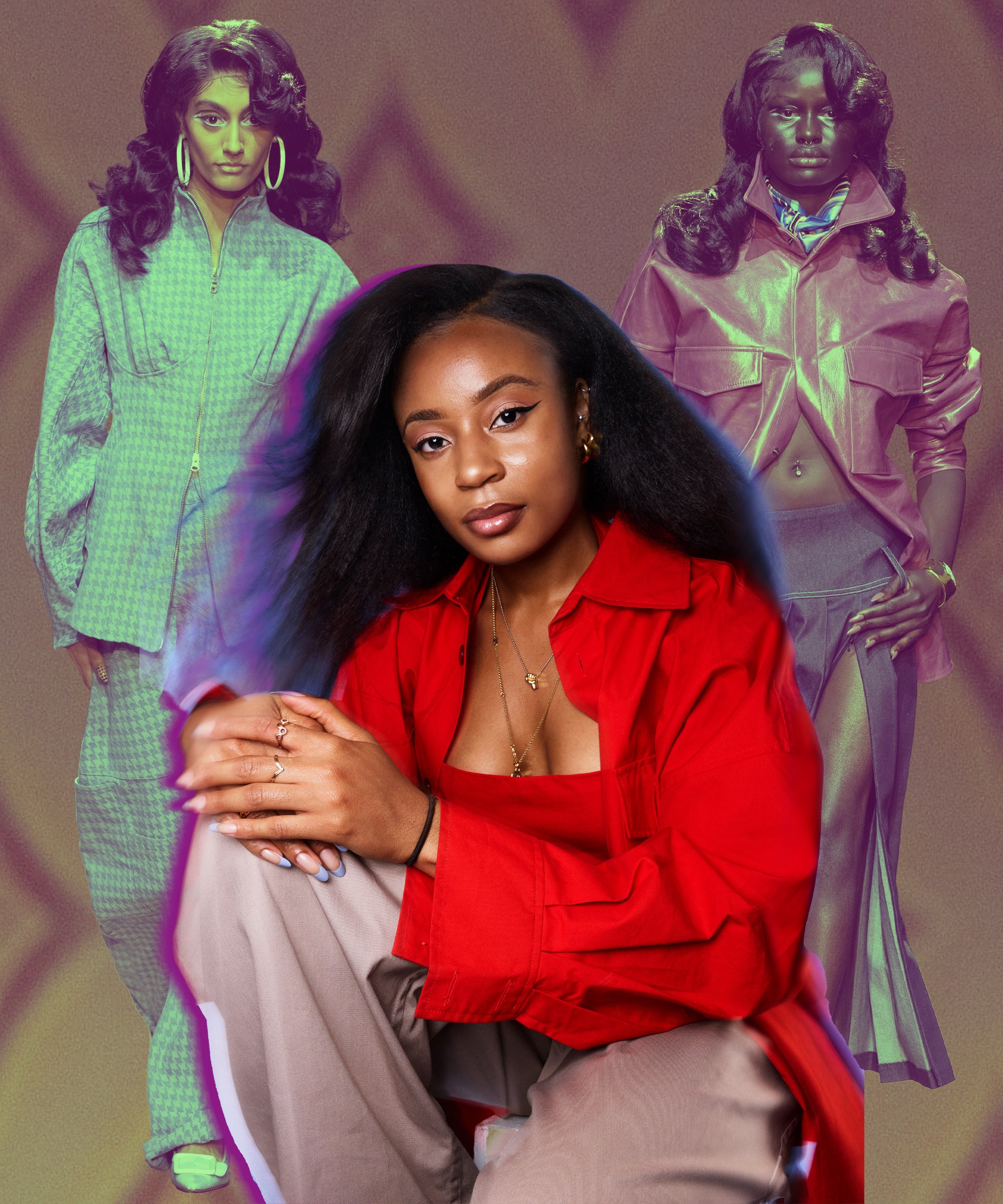
.disclaimer{width:90%;margin-bottom:1rem}.disclaimer__lines{width:100%;margin:0 auto;border-bottom:1px solid #999;padding:0;max-width:150px}.disclaimer__copy{width:100%;max-width:355px;font-family:Brown Regular,sans-serif;font-size:.9rem;font-weight:300;line-height:1.3em;color:#333;padding:0 0 .4rem;margin:1rem auto;text-align:center}
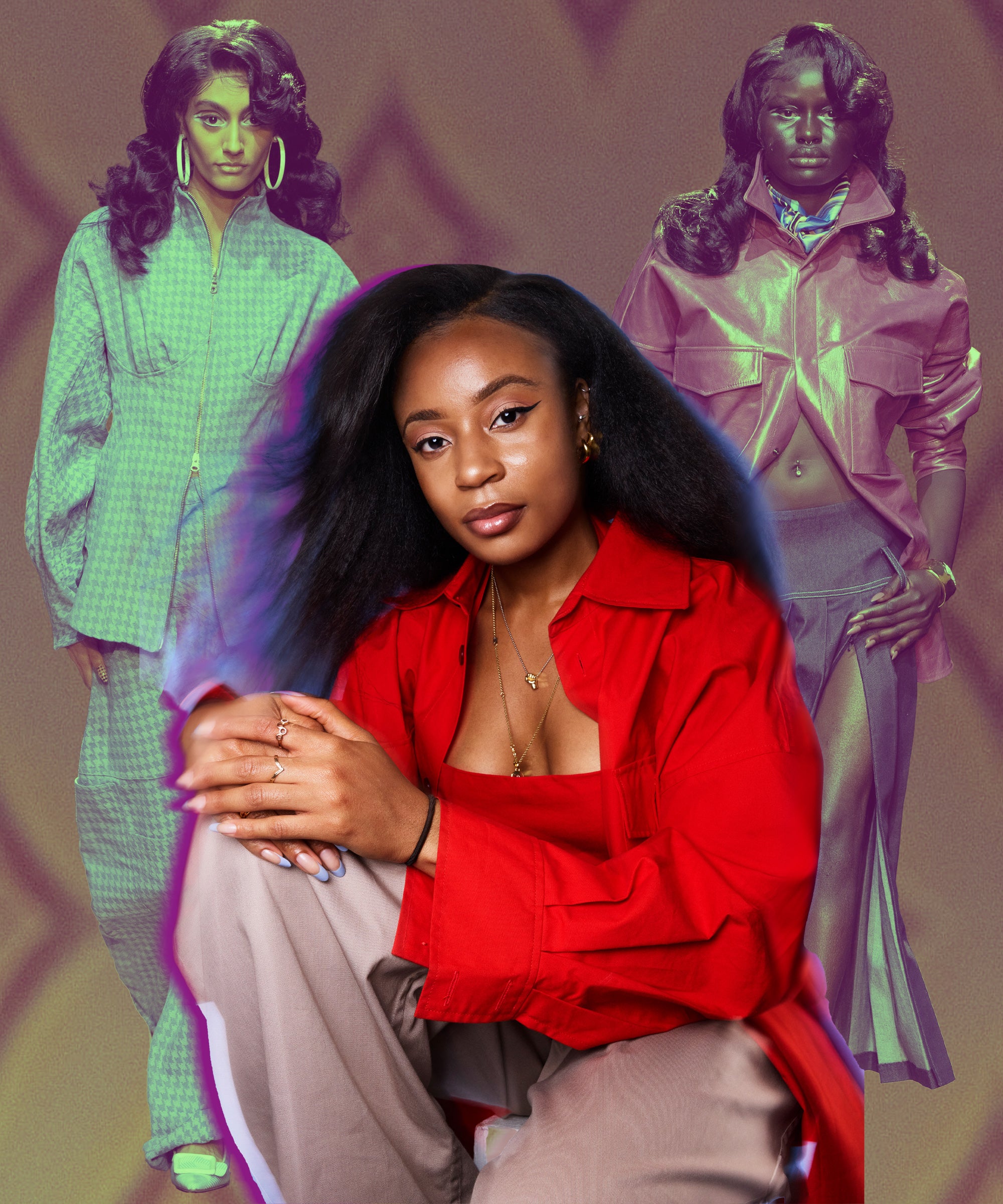
Tolu Coker’s Spring/Summer 2025 show — titled “Olapeju,” which is the 30-year-old designer’s mother’s name in Yoruba and means “where wealth gathers” — closed with models dancing down the runway in party looks made from upcycled leather, cinched tailored blazers, and retro suits in prints that matched all the way down to the gloves and handbags. The venue had been done up to replicate the look of a British-Nigerian living room, equipped with couches, wallpaper projections and framed family photos. It felt homey, but festive: a celebration not just of how far the brand has come, but also of where it comes from, which still serves as its North Star.
Coker is one of London Fashion Week’s buzziest young designers, and this was her third runway collection. She made her London Fashion Week debut last September, and now shows in the British Fashion Council’s NewGen space, which has historically supported superstars (like Simone Rocha and Wales Bonner) in the early stages of their careers. Her eponymous brand has been worn by the likes of Ariana Grande, Tems and Maya Jama, bringing even more attention to her autobiographical designs, which are largely inspired by her British-Nigerian heritage and resilient immigrant community.
Coker pulls a lot from her mother’s wardrobe, specifically the pieces she wore in London when she moved from Lagos in the 1970s. (You can see that in the A-line skirts and mod dresses in Spring/Summer 2025.)
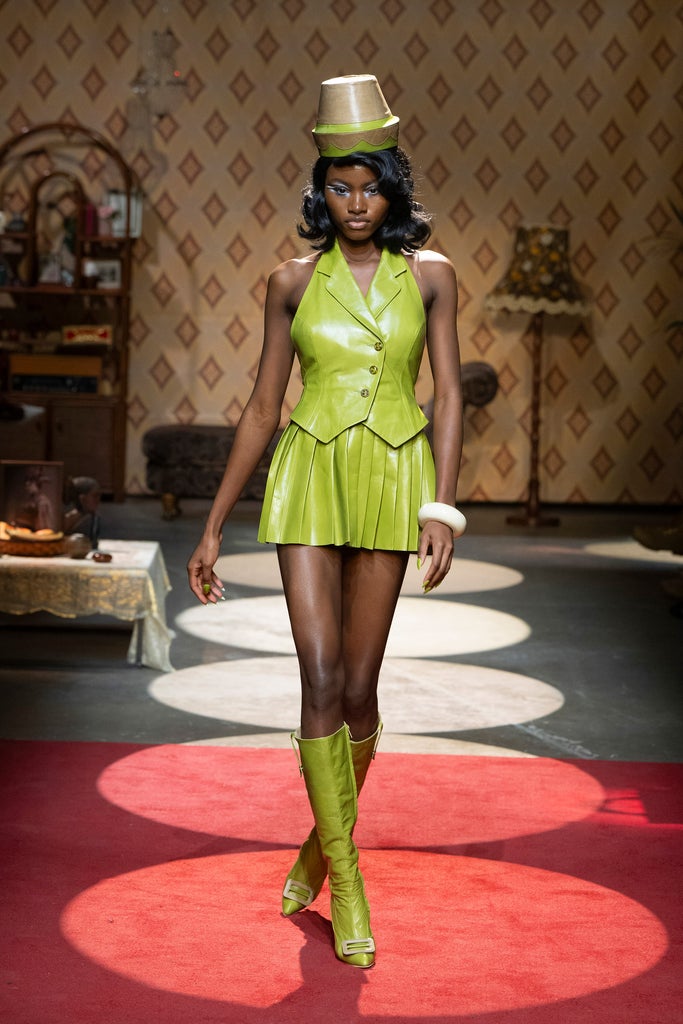
“Like many people from different minority backgrounds, their stories aren’t written traditionally in history,” she tells Refinery29, of her mother and late father, who was also a pillar of her community. “I think through clothing, you can create this documentation of a time, both present and past, that will serve as some form of archive in years to come, to say: ‘We were here.’”
My relationship to clothing is in feeling a genuine connection — I think when people keep things for a long time it’s because of the sentimental value behind it.
TOLU COKER
Coker’s previous collections have explored her mother’s life as a hawker in Nigeria, as well as Yoruba spirituality across the African diaspora — with a throughline of sharp tailoring, bold colors, and styles that exist outside of trend cycles. She’s determined to not only create designs that sell, but tell the stories that matter.
“I’m really about building out wardrobes that are trans-seasonal and have surpassed the brevity of trends,” she says. “My relationship to clothing is in feeling a genuine connection, and I think when people keep things for a long time it’s because of the sentimental value behind it.”
The way Coker infuses her heritage and family histories into her refined, highly-crafted tailoring puts her in the ranks of renowned British designers like Grace Wales Bonner and Priya Ahluwalia, who have built thriving brands with similar values and artistry. In January, Coker graced the cover of British Vogue alongside Ahluwalia and Torishéju Dumi, marking a historic moment for three Black female designers being celebrated for their work.
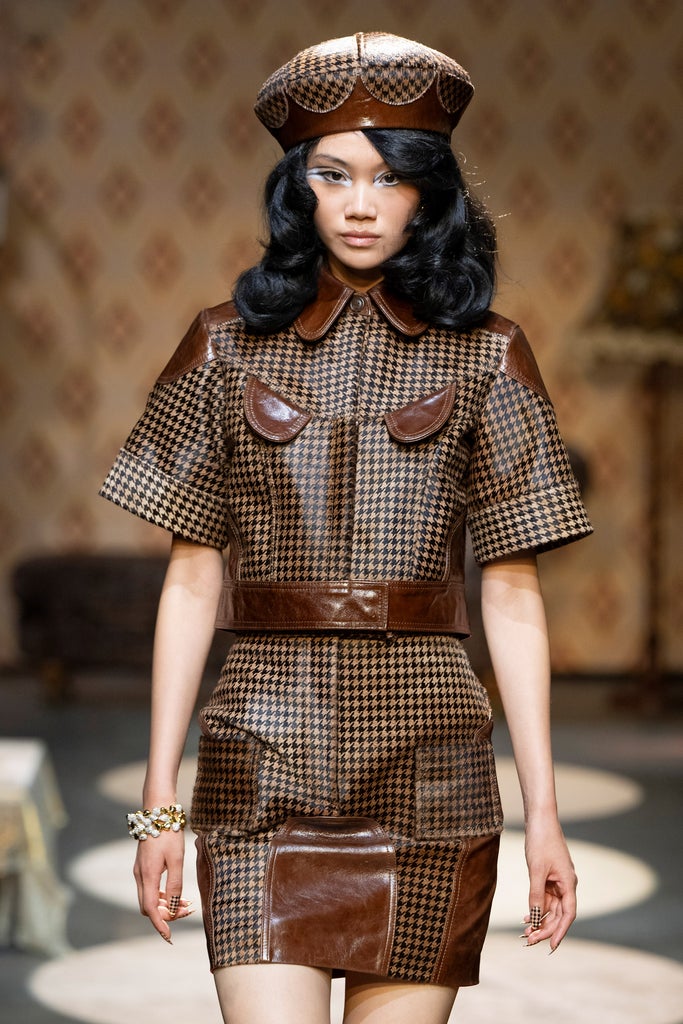
“I think when something like that happens, you feel like, wow, you’re actually having some sort of impact or contribution,” Coker says. “It is, in many ways, very validating. But it also feels like it’s not just for me: It’s for so many other people who’ve been on that journey with me as well.”
The brand’s sustainability efforts range from its conscious consumption mindset and presenting pieces as heirlooms to be reworn for decades, to incorporating deadstock fabrics and upcycled materials into each collection. Coker points out that this too has roots in her culture: “You know when you open a container that you think is an ice cream tub, but then it’s like, stew or rice or something? Yeah, we laugh at these as cultural nuances, but they’re also indicative of a way of life and a way of thinking.”
Countless practices celebrated in the West as being “eco-friendly” are actually the only options for many communities with fewer means or less access to resources. “When we look at the impact of textile waste, it’s the Global South that’s most affected by it. And we have a monopoly on conversations around sustainability, but we’re the last to be affected by its impact,” Coker says.
With another runway under its belt, the Tolu Coker brand has become synonymous with “hype”, and perhaps also “joy”, as it continues to shed light on the uplifting narratives within immigrant communities that are so often overlooked. After the designer and her mother walked hand in hand, and in tears, following the brand’s London show, there couldn’t have been a single soul that wasn’t touched.
“It’s not just about my story or my mother’s story. It’s about human stories,” Coker says. “And I think everyone can see a piece of themselves in that and connect to what we’re creating.”
This article was originally published on Refinery29 UK.
Like what you see? How about some more R29 goodness, right here?
All The Best Trends From London Fashion Week


